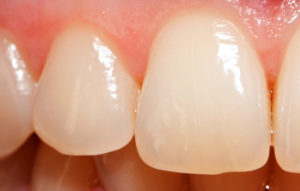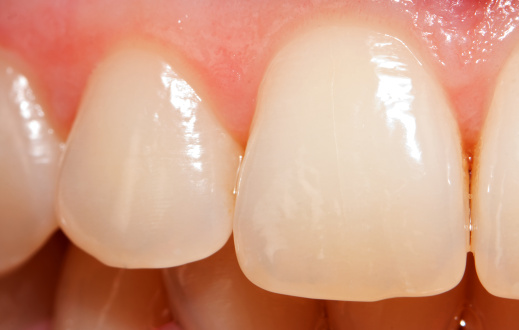How to Strengthen Tooth Enamel Naturally
 Tooth enamel is the hard mineral calcium phosphate that protects the teeth from decay. It is the hardest tissue in the body, but it cannot regrow once it is depleted. Tooth enamel starts to deteriorate with age, dehydration, sugary and acidic foods, and accumulation of harmful bacteria. It is important to recognize if the enamel is starting to weaken so you can stop it because it is too late.
Tooth enamel is the hard mineral calcium phosphate that protects the teeth from decay. It is the hardest tissue in the body, but it cannot regrow once it is depleted. Tooth enamel starts to deteriorate with age, dehydration, sugary and acidic foods, and accumulation of harmful bacteria. It is important to recognize if the enamel is starting to weaken so you can stop it because it is too late.
Although you cannot really restore tooth enamel that has disappeared, you can still restore its health to prevent it from further deteriorating. To do so, it is important to focus on remineralization, which happens in the mouth daily and strengthens weakened enamel. Here are some tips to help you promote remineralization at home.
Lessen the intake of sugary or acidic food and beverages.
Because sugary and acidic foods weaken the enamel, avoiding these kinds of foods can significantly help prevent weakening and decay. You can lower your soda intake or opt for juice or water instead. If you like coffee or citrus fruits, try to reduce your intake of these drinks. You can still enjoy the occasional sugary or acidic food but try to moderate it, as some people might find it hard to completely eliminate it from their diet.
Rinse your mouth after eating sugary or acidic foods.
If you consume any food or beverage that is sugary or acidic, you can still protect your enamel by immediately rinsing your mouth afterward. This should help rinse away the sugar and acid that can cling to your teeth’ surfaces and cause damage.
Eat foods with high amounts of vitamins and minerals.
Be proactive and focus more on consuming foods rich in essential vitamins and minerals. Focus on eating dark leafy greens, along with fresh fruits and vegetables. These food items can help promote the remineralization process by making your saliva produce the necessary minerals to keep the enamel strong and healthy.
Stay well hydrated all throughout the day.
Your saliva is one of your best defenses against enamel erosion, so it helps to promote saliva production. Drinks lots of water throughout the day and try to avoid dehydrating substances like caffeine. If you do drink caffeinated drinks, make sure that you replenish the lost water afterward. A dry mouth can affect the remineralization process. It helps to invest in a good hydrating mouthwash to help you.
Brush twice a day using fluoride toothpaste.
Brush your teeth twice a day for two minutes and floss at least once daily to promote good oral hygiene. Do so gently but thoroughly, and take enough time to clean every tooth to brush away unwanted bacteria. Fluoride is known to promote remineralization, so using fluoride toothpaste makes for a great extra step in protecting the teeth.
Augment oral care with a fluoride mouthwash.
Because fluoride is very effective in protecting the tooth enamel, it should also help to add a fluoride-based mouthwash to your hygiene regimen. Fluoride will help promote the remineralization of your enamel and maintain its strength and health.
Visit your dentist twice a year for professional cleaning.
Even when you have a solid oral care regimen, you can still experience a buildup of bacteria and plaque in the mouth that can erode the enamel over time. The best way to really make sure that your teeth are clean and healthy is to regularly visit your dentist for cleaning and checkup. Use this chance to let a professional check your mouth and dental hygiene habits.
As an added measure, ask your dentist about getting a sealant to help protect your enamel from eroding. Still, the above measures should help strengthen your tooth enamel and give your teeth added protection from potentially harmful bacteria.





 |
|